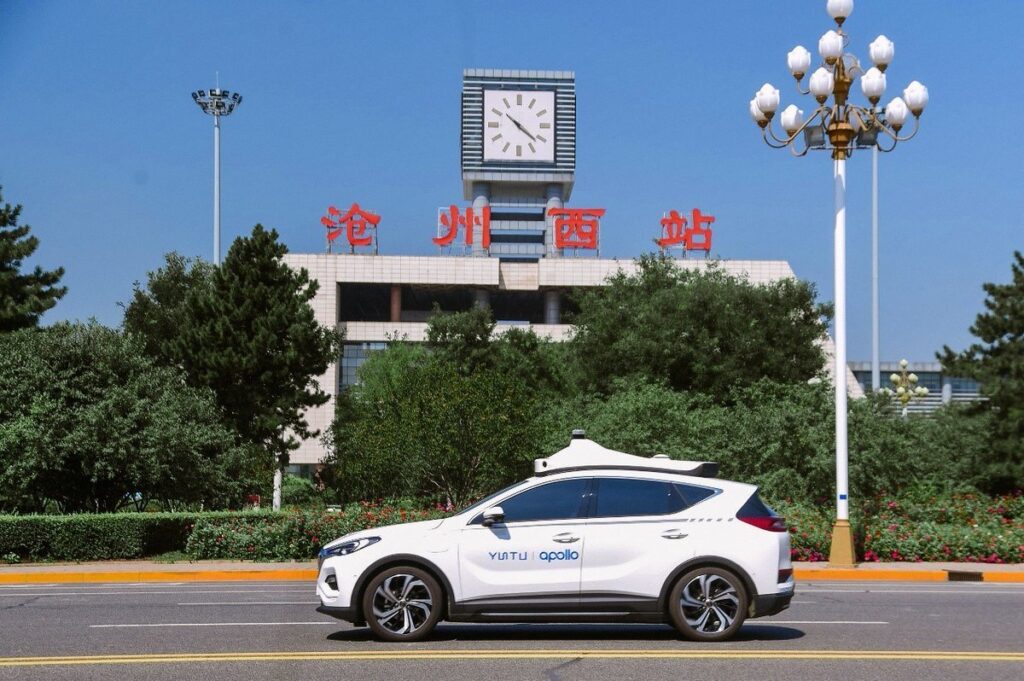Chinese AI and internet giant Baidu Inc reports it has received qualifications for 35 vehicles to demonstrate commercialized autonomous driving (AD) operations, and qualifications for 10 vehicles to conduct driverless testing, from Cangzhou traffic authorities (the city is in eastern Hebei, south of Tianjin).
These clearances pave the way for Baidu to become the first company in China to experiment with various monetization mechanisms for AD services, marking a landmark step on Baidu Apollo’s road to commercialization. Baidu Apollo is an open platform for autonomous driving, and these permissions will allow Baidu to roll out commercialized demonstrations of its smart transportation services in Cangzhou, and explore various mechanisms for charging customers, such as discounts, trial tickets and voluntary payments from riders – the first time this has been done by any autonomous driving company in China.
In August 2020, Baidu opened the Apollo Go Robotaxi service in downtown Cangzhou, which enabled residents to hail free robotaxi rides through their smartphones. In addition to bringing added convenience and safety to the people of Cangzhou, Baidu says its robotaxi fleet of EVs helps to reduce carbon emissions.
The qualifications will also enable Baidu to test driverless vehicles in Cangzhou, making it the first company to do so in the city. Baidu Apollo previously received this permission in Changsha and Beijing in September and December of 2020, respectively. Baidu is the first and only company approved to conduct open-road driverless testing in the Chinese capital. Internationally, Baidu Apollo has also obtained permission to conduct driverless testing in California.
To obtain the Cangzhou qualifications, companies were required to complete a total of 50,000km of local testing on open roads, accompanied by safety drivers, and to be responsible for zero accidents.
As of March 1, 2021, Baidu’s Cangzhou fleet had accumulated 524,696km of test mileage, with each car averaging 17,490km. The company describes this as a testament to the safety and reliability of its Apollo-powered AVs.
Apollo continues to grow
Baidu has been investing in AD since 2013, and the Chinese firm claims Apollo is the world’s leading open platform for autonomous driving, with more than 210 partners, 55,000 global developers and 700,000 lines of open source code.
The Apollo fleet size has grown to 500 vehicles, with open-road tests conducted in nearly 30 cities around the world, accumulating more than 7,000,000km of testing. In China, Apollo has obtained 214 autonomous driving licenses, including 161 for carrying passengers. Baidu’s Apollo Go Robotaxi service has now been opened in Beijing, Changsha and Cangzhou, carrying more than 210,000 passengers, with plans to expand to 30 cities in the next three years.
In recent years, Cangzhou has been a leading city for the development of AD. It was the first city in northern China to carry out manned tests of autonomous driving and has the third-largest intelligent-connected test road network in the country.


